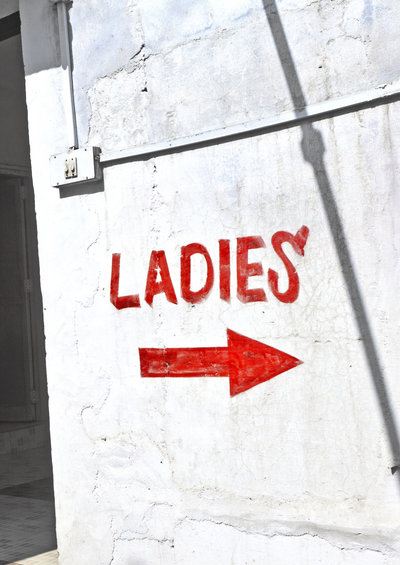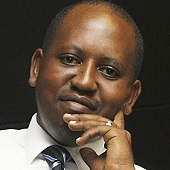South Africa: Cry, the Beloved Country
What took South Africa from 1994 to 2014 will not take it to 2034.
November 20, 2014

When renowned author Alan Paton penned the words – “Cry, the Beloved Country” – he probably did not imagine that in 2014 South Africa would still be a country wrestling with itself. In that short, poetic and prophetic title, Paton aptly summed up the perennial condition of South Africa.
His seminal novel, first published in 1948, was ultimately a call for South Africa to put its past behind it and look to a new and a brighter future. The novel was subsequently adapted into a stage play, as well as a movie starring U.S. actor James Earl Jones.
Fast forward to 2014 and Paton’s words seem to have been quite prescient as South Africa keeps taking one step forward and two steps back.
The global player with developmental problems
Although South Africa is now a global player — via the G20 and the BRICS — the country is beset with challenges that remind everyone of the long road that still lies ahead. Unemployment is sky high, poverty is endemic, education outcomes are dismal, crime is rampant and corruption continues to rob the economy blind.
Earlier this year, South Africa even lost its status as Africa’s No. 1 economy — to Nigeria.
In the second quarter of this year, South Africa narrowly averted a recession after the economy had contracted by 0.6% in the first quarter. This was a consequence of the country reeling from the longest strike in its history. South African platinum mines, responsible for three-quarters of world’s platinum supplies, stood shut for five months.
Add to that the weekly, if not daily protests over service delivery and the recent chaos in Parliament, it soon becomes clear that the South Africa that Nelson Mandela may have dreamt of has not yet arrived.
In the last two weeks, politicians from the opposition parties have almost come to blows with those of the ruling African National Congress (ANC) over their differences about how President Jacob Zuma should account for taxpayer funds that were spent on upgrading his Nkandla homestead.
Not the dream of Mandela
The chaotic scenes in parliament, laced with utter disregard for public decency, hardly depict a country that is at peace with itself. Even a well-intentioned attempt by Deputy President Cyril Ramaphosa to broker a peace deal among parties in Parliament in recent days is on the verge of collapse.
Institutional turmoil, both in the public service and in the private sector, increasingly represents a fundamentally sorry state of affairs.
What country goes for four months without a postal service? Mail delivery centers across the country are bursting at their seams with millions of undelivered mail due to a strike that appears to have no end in sight.
And what about instability in the executive ranks of money-losing national carrier South African Airways (SAA)? The disarray at the public broadcaster SABC? Add to this the power crises at power utility Eskom. South Africa just makes you want to say as did Paton, “Cry, the Beloved Country.”
It just seems as if failure has become a pre-condition for being in the public service, politics and business in South Africa. What other reason explains why suddenly there is a raft of top executives, especially in the public sector, with bogus or unexplained missing qualifications?
All this and more points to an urgent need for some form of intervention, now.
What to say of the boardroom brawls that are fuelling value destruction running into billions of rand at major corporations? PPC, the major cement company with operations elsewhere in Africa and listed on the Johannesburg Stock Exchange, is a case in point.
Currently, PPC is embroiled in an ongoing fiasco with its former chief executive, who until September was esteemed among South Africa’s highly respected black corporate executives.
As a result, shareholders have seen about R3 billion ($300 million) of PPC’s market value being wiped out. This is what happens when the business of business turns into a business of settling personal scores.
Both government and business asleep at the switch
These episodes, and others like them, are a concern for one simple reason: Both government and business appear to be sleeping at the switch, forgetting that the country is at an inflection point. It can either move forward progressively, or backward with haste — which seems to be the case at the moment.
Some try to explain this away, saying that this is all business as usual. Hardly so. In a country that is beset by massive socio-economic challenges, there is just no way to gloss over the prevailing paralysis.
Paralysis is manifesting itself on a daily basis, especially as those who are supposed to lead in fact shirk their responsibility. South Africans are yearning for those who hold public or private office to act as grown-ups – in word and in deed.
They are also yearning for business to have a heart. South Africa’s youth is yearning for real role models. South Africans are also yearning for the opportunity to better themselves and their communities.
It is appalling that unemployment among youth aged 15 to 34 jumped from 32.7% to 36.1% between 2008 and 2014. South Africa needs targeted policy interventions to achieve much better outcomes.
South Africans also yearn to see an end to corruption, crime and violence. This generation of South Africans is no different to that of Alan Paton’s.
Look to China and its rise out of poverty
That future, however, will prove elusive, should the current state of affairs – characterized by despondency, apathy, complacency and indifference – persist. As a developing country, South Africa has a lot to learn from its peers, especially China, whose development has seen the largest number of people on the planet extricated out of poverty, with more to follow.
Although China is by no means perfect and has its critics, what is often not appreciated about its strides is that as a developing economy, it presents a developmental canvas that should be adapted to give countries like South Africa structural impetus to drive real change, especially at the level of ordinary people.
Speaking to a top Chinese diplomat in recent days, I learnt that what makes “China, Inc.” work is the fact that it has a “national consensus.” That is precisely what South Africa needs — and very soon.
Survey after survey shows that South Africa must become more dynamic and competitive in order to build a more resilient economy. Yet, all the signs so far point to the fact that mediocrity is something that South Africa is not yet prepared to do away with.
Lest we forget – what took South Africa from 1994 to 2014 will not take South Africa to 2034.
Takeaways
South Africa keeps taking one step forward and two steps back.
South Africa is now a global player -- via the G20 and the BRICS -- but is beset with challenges.
The South Africa that Nelson Mandela may have dreamt of has not yet arrived.
South Africans yearn to see an end to corruption, crime and violence.
Read previous

10 Facts: “Open Defecation” in India
November 19, 2014
